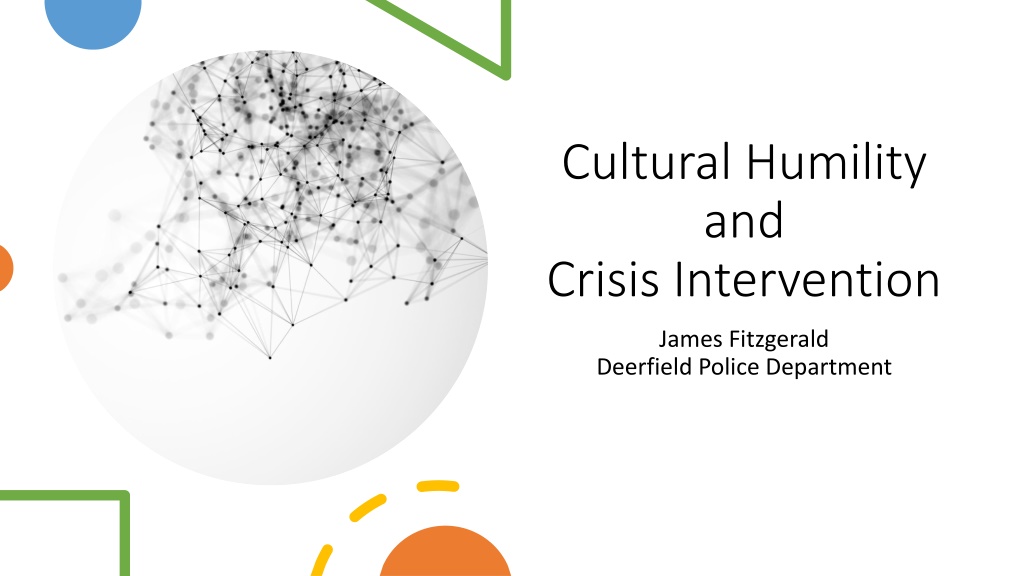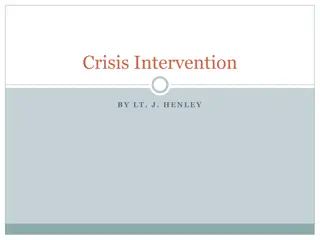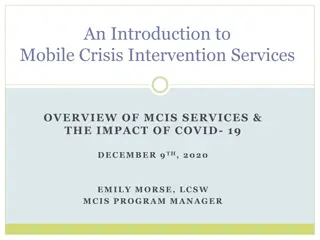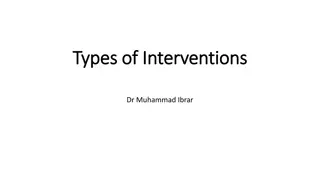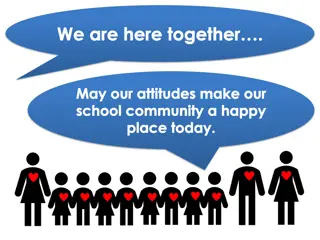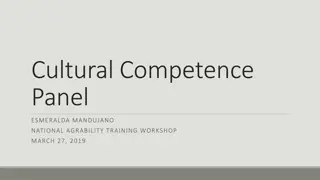Understanding Cultural Humility in Crisis Intervention
Cultural humility in crisis intervention involves understanding, accepting, and honoring diverse cultural perspectives without judgment. It requires ongoing self-exploration, learning from others, and recognizing power imbalances. Three key principles include lifelong learning, awareness of power dynamics, and institutional accountability. By implementing cultural humility, law enforcement can better serve and respect their communities during crisis situations.
Download Presentation

Please find below an Image/Link to download the presentation.
The content on the website is provided AS IS for your information and personal use only. It may not be sold, licensed, or shared on other websites without obtaining consent from the author. Download presentation by click this link. If you encounter any issues during the download, it is possible that the publisher has removed the file from their server.
E N D
Presentation Transcript
Cultural Humility and Crisis Intervention James Fitzgerald Deerfield Police Department
At the end of this presentation, participants will be able to: Learning Learning Objectives Objectives Define Cultural Humility Relate Cultural Humility to Crisis Intervention Implement Cultural Humility into everyday work
Merriam Webster defines culture as the integrated pattern of human knowledge, belief, and behavior that depends on man s capacity for learning and transmitting knowledge to succeeding generations. It can also be defined as the customary beliefs, social norms, and material traits of a racial, religious, or social group that have a set of shared values, attitudes, values, and practices.
Gender Roles Socio-economic Status Values Religion Heritage Gestures Biases Attitude towards weather Aspects that affect culture
Relating Cultural Humility To Crisis Intervention
The relationship of cultural humility and crisis intervention begins with understanding and accepting another culture s beliefs and practices form that culture s perspective, and not assessing the worthiness of that culture.
The ongoing process of self exploration and self critique. A willingness to learn from others and honoring their beliefs and values. Cultural Humility Involves Recognizing the power imbalance that exists between Law Enforcement and the community.
Three Principles of Cultural Humility Three Principles of Cultural Humility -- --A lifelong commitment to learning and A lifelong commitment to learning and critical self reflection. critical self reflection. -- --Being aware of the power imbalance that Being aware of the power imbalance that exists between law enforcement and our exists between law enforcement and our communities. communities. -- --Institutional accountability and a mutually Institutional accountability and a mutually respectful partnership that is rooted in respectful partnership that is rooted in trust. trust.
H -Humble about our biases and assumptions U - Understand our own background and culture M -Motivate ourselves to learn about other cultures B - Begin to incorporate this knowledge into our everyday work L - Lifelong commitment to learning E -Emphasize respect and Empathy
Thank you very much! This Photo by Unknown Author is licensed under CC BY-SA
